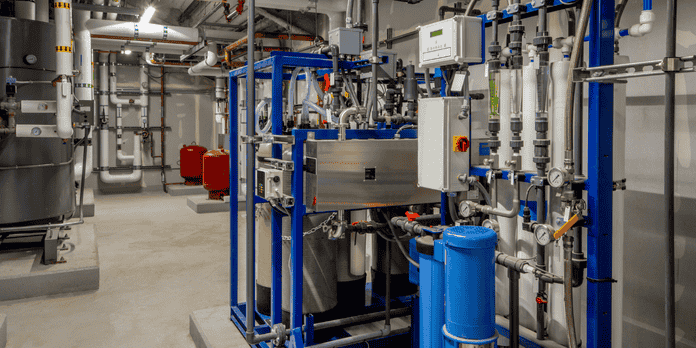Clean water isn’t just a necessity—it’s a basic human right. Whether it’s for drinking, cooking, industrial use, or environmental safety, water treatment systems play a crucial role in delivering safe, usable water. But with so many different systems available, how do you know which one is right for your needs?
In this guide, we’ll explore the types of water treatment systems, their applications, and how to choose the ideal one. This is especially helpful for homeowners, businesses, and industries looking for solutions from trusted water treatment plant manufacturers in Ahmedabad and across India.
Why Water Treatment Matters
Before diving into the different systems, it’s important to understand why water treatment is essential:
-
- Removes harmful contaminants and pathogens
-
- Prevents waterborne diseases
-
- Ensures water quality for industrial processes
-
- Protects the environment from polluted wastewater
Whether you’re setting up a mineral water plant, managing a housing society, or running a manufacturing unit, choosing the right system is critical for performance, safety, and compliance.
Common Types of Water Treatment Systems
There’s no one-size-fits-all solution when it comes to water purification. The type of treatment system you need depends on your source of water, intended use, budget, and local regulations.
Here are the most widely used types of water treatment systems:
1. Reverse Osmosis (RO) System
Best For: Drinking water purification in homes, offices, and commercial setups.
How it works: RO systems force water through a semipermeable membrane that filters out dissolved salts, heavy metals, microorganisms, and chemicals.
Benefits:
-
- High-quality drinking water
-
- Removes up to 99% of contaminants
-
- Ideal for hard or salty water areas
Common Usage: RO is a core component in many mineral water plants.
2. Ultraviolet (UV) Purification System
Best For: Killing bacteria and viruses in water.
How it works: UV rays penetrate harmful microorganisms and deactivate their DNA, rendering them harmless.
Benefits:
-
- Chemical-free disinfection
-
- Fast and effective
-
- Low maintenance
Note: UV systems are often combined with RO or filtration systems for complete purification.
3. Ultrafiltration (UF) System
Best For: Homes and small offices with relatively low TDS (Total Dissolved Solids) in water.
How it works: UF uses hollow fiber membranes to remove bacteria, cysts, and other microorganisms.
Benefits:
-
- Does not require electricity
-
- Retains essential minerals
-
- More affordable than RO
4. Activated Carbon Filters
Best For: Improving taste and odor, removing chlorine and organic chemicals.
How it works: Water passes through carbon media which absorbs chlorine, VOCs, and unpleasant odors or tastes.
Benefits:
-
- Enhances water flavor
-
- Reduces chemical content
-
- Affordable and low maintenance
Often used in conjunction with RO or UV systems for added purification.
5. Water Softeners
Best For: Areas with high hardness in water (rich in calcium and magnesium).
How it works: Softening systems use ion-exchange resin to replace hardness-causing minerals with sodium or potassium ions.
Benefits:
-
- Prevents scaling in appliances and plumbing
-
- Increases soap efficiency
-
- Prolongs lifespan of water heaters and dishwashers
6. Wastewater Treatment Plants (WWTP)
Best For: Industrial, municipal, and large commercial facilities.
How it works: Wastewater goes through multiple stages—primary, secondary, and tertiary treatment—to remove solids, organic matter, and pathogens.
Types of Wastewater Treatment:
-
- STP (Sewage Treatment Plant) – Domestic wastewater
-
- ETP (Effluent Treatment Plant) – Industrial effluent
-
- CETP (Common Effluent Treatment Plant) – Shared industrial treatment facility
Note: If you’re looking for a wastewater treatment plant in Ahmedabad, it’s crucial to choose one that meets CPCB and CPCB standards.
7. Demineralization (DM) Plant
Best For: Industries requiring ultra-pure water (like pharmaceuticals, electronics, and power plants).
How it works: Uses ion exchange to remove all dissolved salts and minerals.
Benefits:
-
- Produces high-purity water
-
- No chemical residue
-
- Suitable for high-precision operations
How to Choose the Right Water Treatment System
With so many options, selecting the right system depends on a few key factors:
1. Water Source
Is it borewell, municipal supply, river, or wastewater? This determines the level and type of treatment required.
2. Purpose of Water Use
Drinking, irrigation, process water, or recycling? Each has its own quality standards.
3. TDS and Contaminant Levels
Testing your water quality helps determine whether you need RO, softeners, or just filtration.
4. Budget and Maintenance
While RO systems may have higher upfront costs, they offer higher purification. UV and UF systems are more economical but limited in function.
5. Space and Installation
Some systems like DM plants or WWTPs require more space and infrastructure.
Working with the Right Manufacturer
When investing in a treatment system, your partner matters just as much as the technology.
If you’re based in Gujarat or nearby regions, choosing from reliable water treatment plant manufacturers in Ahmedabad gives you an advantage:
-
- Local support and service
-
- Customization as per Gujarat’s water conditions
-
- Compliance with Indian water safety standards
-
- Faster delivery and installation
Leading manufacturers of water treatment plants in Ahmedabad offer everything from mineral water plant setup, to wastewater treatment solutions, to industrial RO systems with AMC and maintenance.
FAQs on Water Treatment Systems
1. What is the best water treatment system for home use?
RO + UV systems are ideal for Indian households, especially in areas with high TDS and microbial contamination.
2. Can I recycle wastewater at home?
Yes, greywater recycling systems can be installed for gardening or flushing purposes, though these are more common in commercial/residential complexes.
3. Is it legal to discharge untreated wastewater?
No. Both residential societies and industries are legally required to treat wastewater before discharge, as per pollution control board guidelines.
4. How much does it cost to set up a mineral water plant?
Costs vary by capacity, automation, and licensing. It can range from ₹5 lakhs for a small plant to ₹50+ lakhs for large-scale operations.
Final Thoughts
Choosing the right water treatment system is essential for health, safety, and environmental responsibility. Whether you’re a homeowner, a builder, or an industrial operator, understanding the types of water treatment systems helps you make informed decisions.
If you’re looking for top-tier solutions, partner with a trusted manufacturer of water treatment plants in Ahmedabad. From mineral water plants to wastewater treatment systems, local experts can guide you through installation, compliance, and long-term maintenance.

